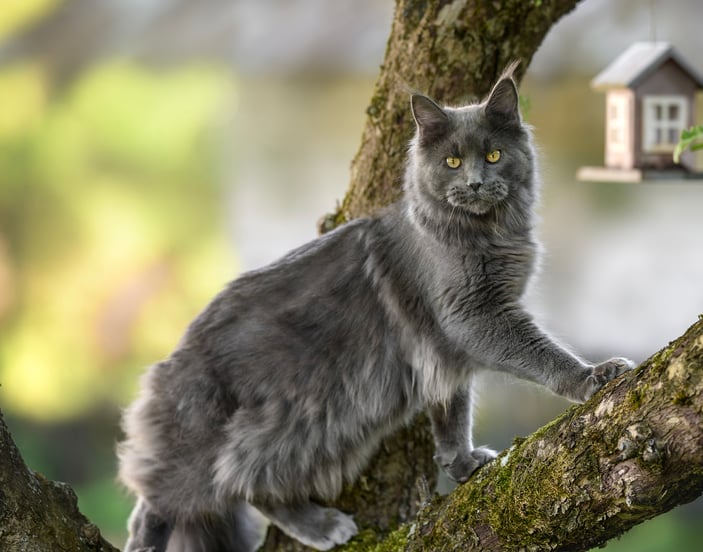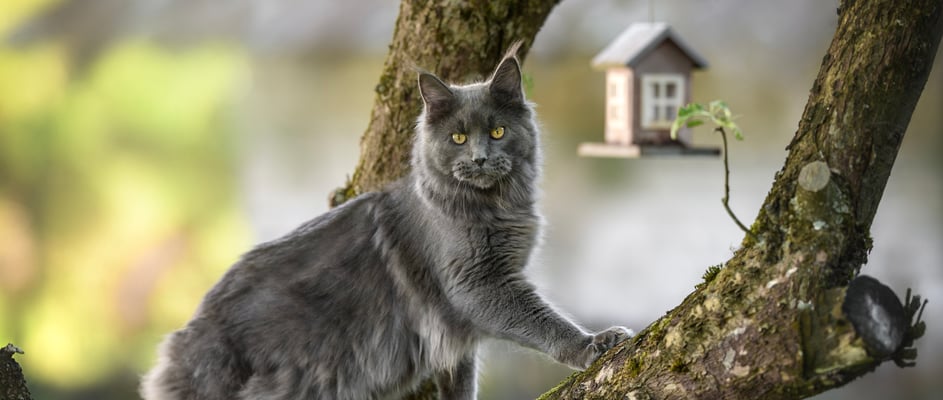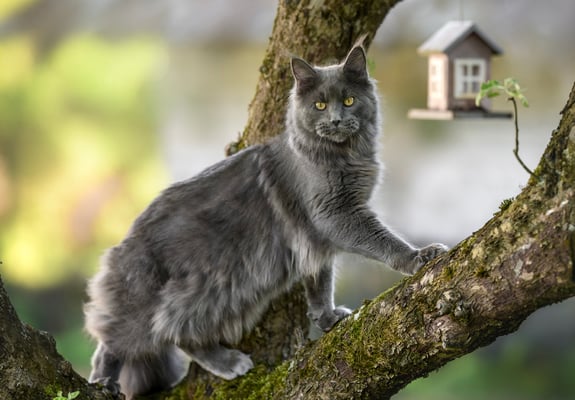The guide to owning a Maine Coon.
Looking to welcome a cat into your home but not sure where to begin? Welcome, you’re in the right place. Secure a no-obligation quote with Waggel to make sure your new friend gets the cover they deserve.
Jump to:
Stats at a glance.
The Maine Coon is known as the gentle giant of the cat world.
When you first spot a Maine Coon cat, you’ll likely notice the long tufts of fur at the ears and paws, and a rectangular body that suggests power and grace.
It’s no wonder people consider them one of the longest cat breeds among domesticated cat varieties.
Below, we’ll explore how these forest cat descendants became so popular, plus share practical breed information about their personality, grooming needs, and health.
History and origin.
This impressive feline comes from the state of Maine in the USA, where harsh winters demanded hunting skills and thick coats.
Rumour has it they sprang from matings between local short-haired cats and the Norwegian forest cat, but the true story remains a blend of lore and real history.
By the 1860s, these native American “Maine cats” gained fame at fairs and shows.
One Maine Coon named Cosie even won a silver collar and medal at an early cat show in 1895.
Over time, enthusiasts formed the Maine Coon Cat Club, and modern cat fanciers still adore them.
Their large build and water-resistant coat helped them survive harsh climates in rural barns.
Today, you can find them lounging comfortably on sofas worldwide.
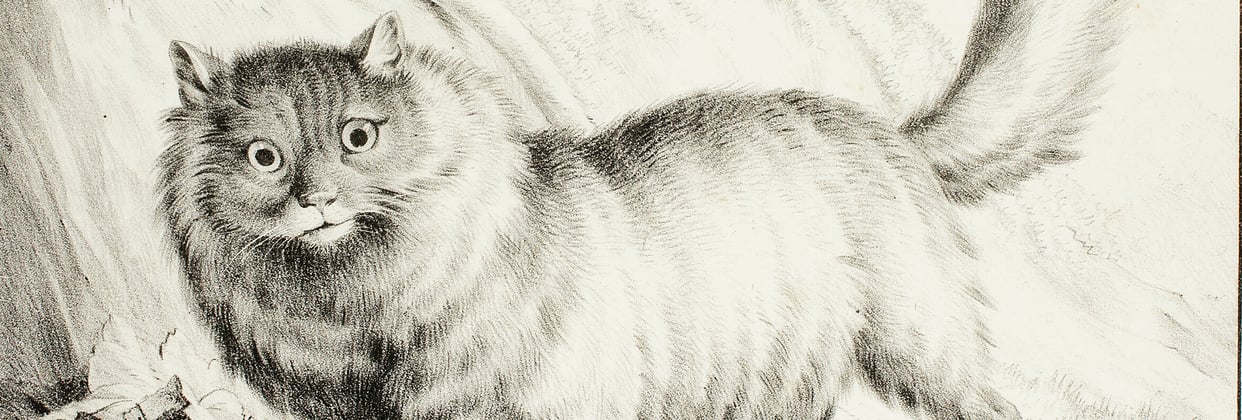

How much does a Maine Coon cat cost?
Maine Coons aren’t just big in size—they’re a big investment too. If you’re buying from a reputable breeder in the UK, you can expect to pay anywhere from £250 to £2,500, depending on the cat’s lineage, appearance, and whether they’re show-quality.
Some breeders may charge even more for kittens with pedigree paperwork or rare colours. But it doesn’t stop at the upfront cost—Maine Coons eat more than your average moggy, need regular grooming, and can be prone to health issues like hip dysplasia or heart conditions.
So it’s worth factoring in ongoing costs like insurance, food, vet visits, and grooming. They're worth every penny, of course—but it's good to go in with eyes (and wallet) open.
Physical characteristics.
Maine Coons are famous for their large size.
Males can weigh up to 8 kg or more, while female Maine Coon cats might be slightly smaller but no less regal.
They sport a broad head, high cheekbones, and a long muzzle.
Their chest is broad and sturdy.
They also have a layered coat with a silky undercoat beneath a protective top coat.
Many come in tabby or brown tabby patterns (including the popular “tabby Maine Coon”), but you’ll see many colours, from white cats to black smoke.
Those distinctive ear tuft tips—often called “lynx tips”—and the generous tail fluff help them stand out.
Some adult Maine Coon cats may also be polydactyl, meaning they have extra toes on each paw.
If you’d like more insights into other long-haired breeds, see our post on “Long-Haired Cat Breeds”.
Colours and patterns.
Just as Bengal cats boast rosettes, the Maine Coon offers a variety of hues:
Brown tabby (arguably the classic)
Solid black, white, or grey
Tortie (tortoiseshell)
Tabby with silver highlights
Calico or bicolour
You’ll notice that a Maine Coon’s eyes often come in shades of gold or copper, although green and blue also show up with certain coat colours.
Coat length can vary slightly by season, and their tuft style might be less pronounced in warm months.
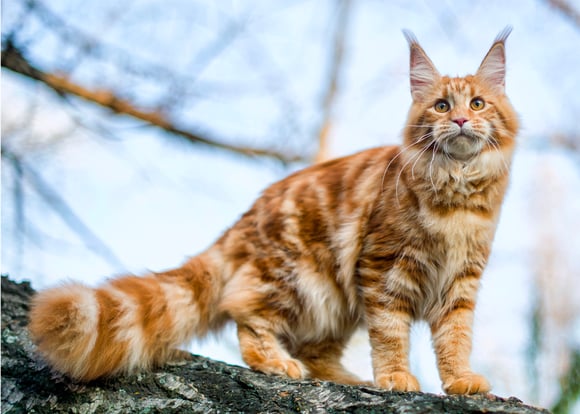




Temperament and personality.
Many owners love this cat breed because it’s affectionate while still being independent.
The Maine Coon’s gentle nature earns it the nickname “gentle giant,” and they often form strong bonds with their families.
They may greet you with a quiet chirping instead of a loud meow, especially at dinner time.
If you introduce a Maine Coon kitten into a household that welcomes cats, they’ll likely join in seamlessly, though they can be a bit shy at first.
Maine Coons generally enjoy human company, following you from room to room but rarely being pushy.
They have playful streaks, often using their large paws to bat toys around or fetch them back to you.
Many remain kitten-like well beyond 15 months old, so you’ll have a fun companion for years.
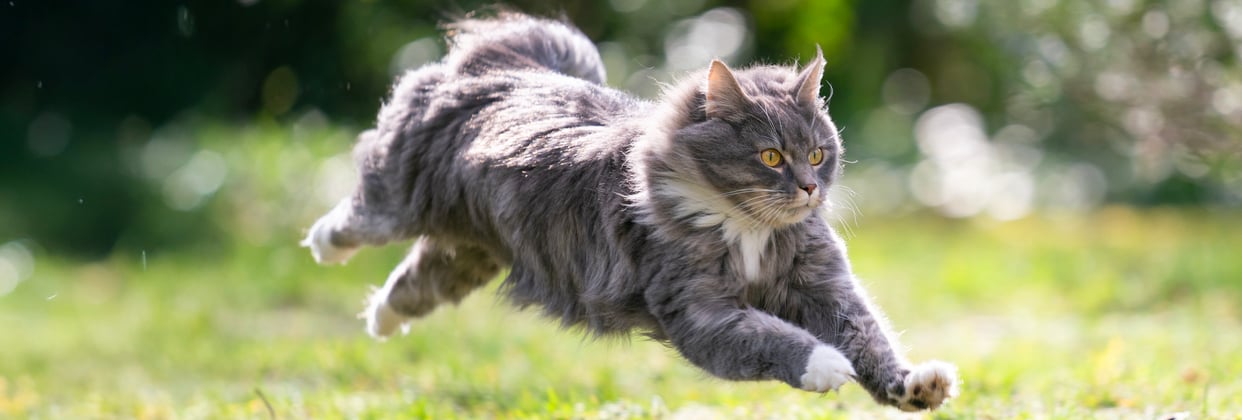

Health considerations.
Any purebred Maine Coon may inherit conditions that owners should watch out for.
Some key concerns include:
If you see sudden changes in appetite or behaviour, contact your vet.
Sometimes, hair or skin concerns (like shedding or bald patches) can arise.
Read “Causes and Issues of Hair Loss and Alopecia in Cats” for tips on when to call a professional.
It’s also wise to think about Maine Coon pet insurance.
Large breeds can rack up vet bills if a condition emerges.
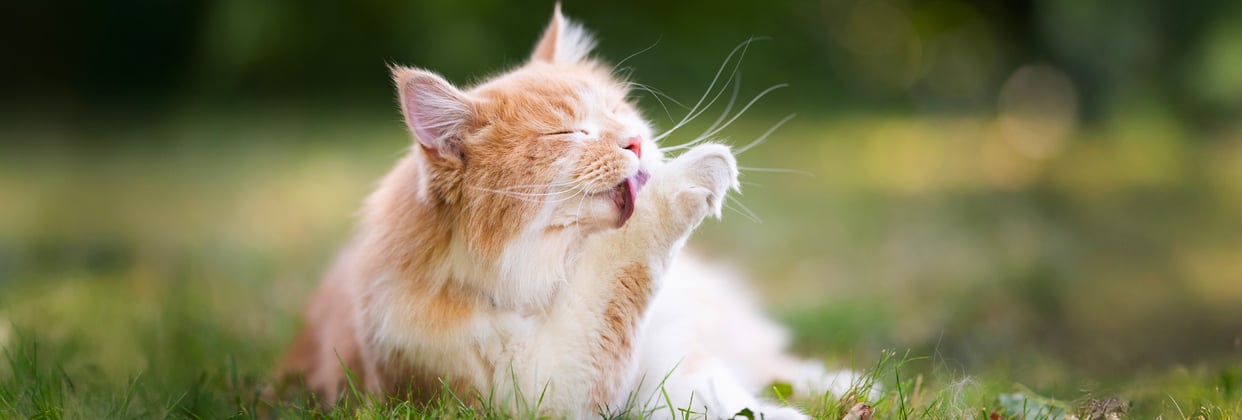

Living with a Maine Coon.
Maine Coons flourish in spacious environments but adapt decently to apartments as long as they have enough vertical space.
If you have cat trees, they’ll appreciate climbing them.
These cats also enjoy vantage points near windows, so they can watch neighbourhood birds.
Because of their background in hunting skills, they might prefer interactive toys or puzzles.
And if you have other pets, a well-socialised Maine Coon typically does fine, but always supervise first interactions.
If you want to read tips on multi-pet households, check out “How to Introduce a Puppy to a Cat”.
Though they have thick coats, that doesn’t mean they’re immune to cold.
They do enjoy cooler weather, but ensure they stay indoors or have a safe shelter if your climate is extreme.
Diet and exercise.
Maine Coons thrive on a balanced mix of wet and dry food.
Because they’re a large-size breed with a tendency to become overweight, portion control is key.
Look for formulas designed for big or long-haired cats if possible.
Keep in mind:
Dry food helps with dental health, but choose a high-quality brand.
Wet meals ensure hydration, especially if your cat isn’t a big water drinker.
Interactive play is crucial. Toys that mimic prey or encourage your cat to leap are ideal.
Even a sturdy laser pointer session can keep them active.
Aim for at least 20-30 mins of daily play.
If your Maine Coon seems bored, it might invent its own entertainment, possibly leading to knocked-over items.
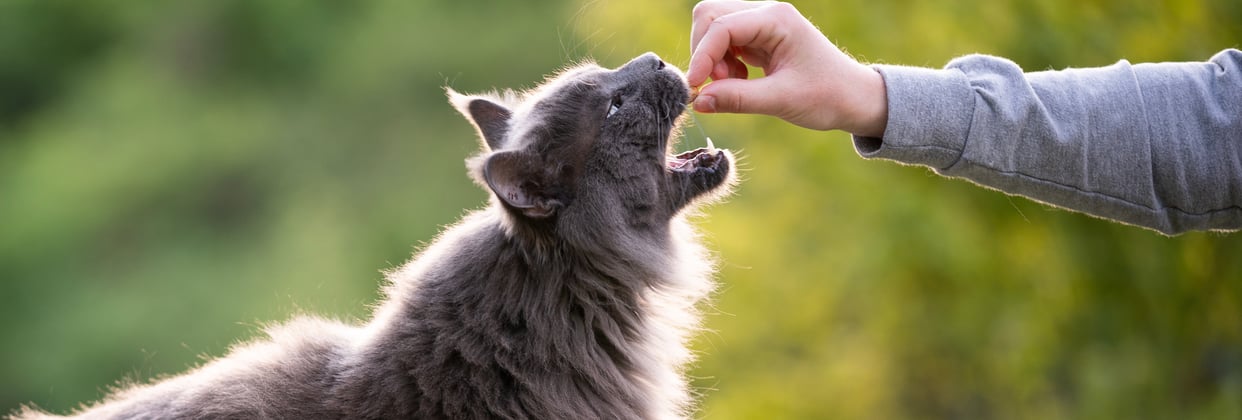

Grooming and care.
You’ll want to learn all about grooming to keep all that gorgeous fur tangle-free.
Unlike a shorthair cat, they have a layered coat that can mat if ignored.
Brushing: Two or three times a week with a slicker brush or comb. Pay attention to the ruff around the neck and the underbelly, where knots often form.
Bathing: Usually not necessary unless your cat gets especially dirty. However, some Maine Coons tolerate water better than other breeds.
Nail care: Trim claws as needed. Provide scratching posts so they can keep their paws in shape.
Dental: Regular brushing or dental treats help ward off gum disease.
Small grooming steps can save bigger headaches later.
For more tips, see “How to Bathe a Cat” if you’re new to cat bathing.
Is a Maine Coon right for you?
If you love big, plush felines with a soft demeanour, a Maine Coon cat may fit perfectly.
They can do well in families with children or other pets, thanks to their patient disposition.
They appreciate a bit of personal space, but once comfortable, they’ll be a very affectionate friend.
Maine Coons do require consistent grooming.
If you’re ready to groom a long-coated companion and keep up with routine vet checks, then you’ll enjoy having such a devoted cat around.
Any serious breeder or rescue might check if your home suits a Maine Coon lifestyle.
They’ll want to ensure you understand these cats can take a couple of years to fully mature in size and need regular maintenance.
Lastly, remember that a purebred Maine Coon can be an investment in terms of cost, they start around £200 and go all the way to £2500 on average.
Breeders often put effort into ensuring healthy lines free of genetic disorders.
Rescue groups may also have older, adult Maine Coon cats looking for love.
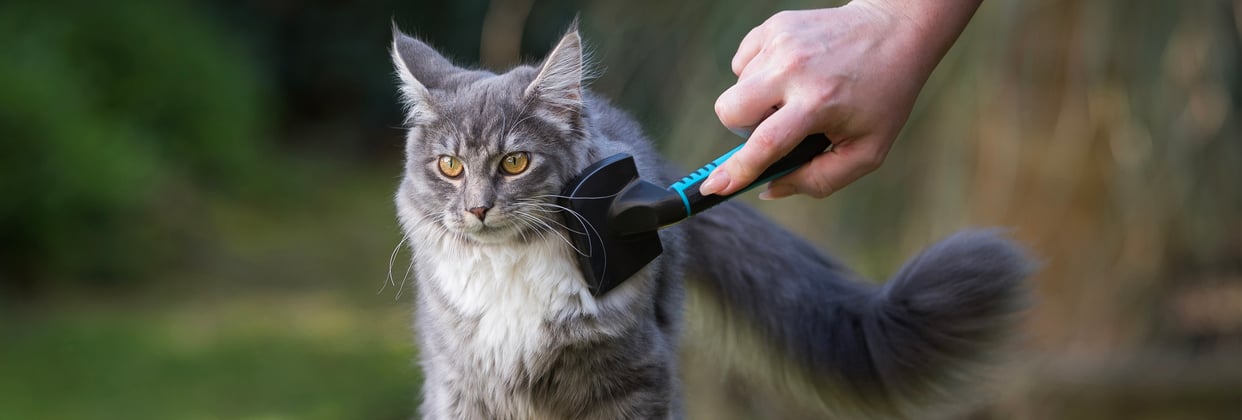

Frequently asked questions.
Is a Maine Coon hypoallergenic?
Not really. No cat is 100% hypoallergenic, and Maine Coons do shed, though some people find them less irritating than others. Allergies vary among individuals.
How do I choose a Maine Coon kitten?
Find a reputable breeder or consider adoption.
Look for catteries affiliated with a fanciers association or the Maine Coon Cat Club.
Ensure kittens appear well socialised, with clear eyes and healthy weight.
And ask about screening for hip dysplasia and heart muscle conditions.
Are Maine Coons good family pets?
Generally, yes.
They’re known for being sweet with children, though always supervise. They also adapt to cat-friendly dogs if introduced properly.
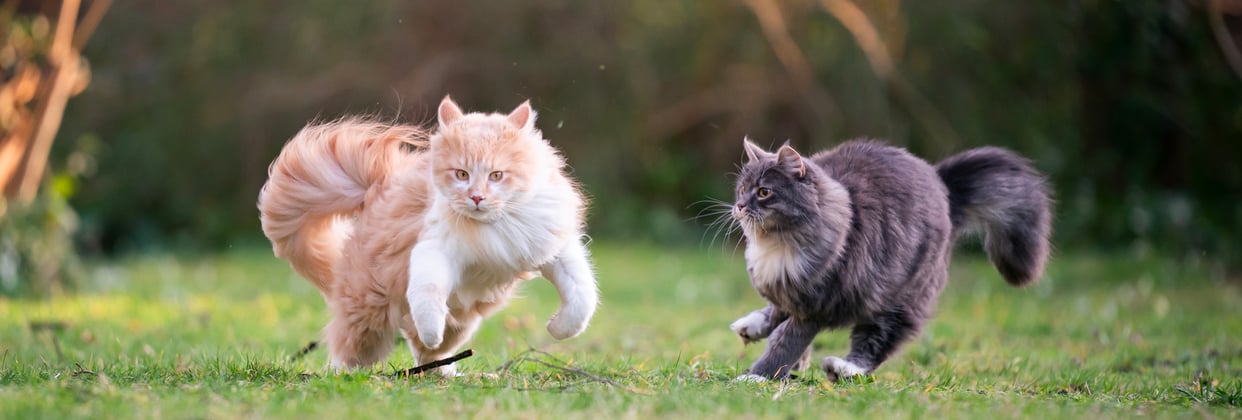

What is the price of a Maine Coon?
It varies.
A show-quality kitten can cost over £1,000, while pet-quality or older rescues may be cheaper.
Always check the breeder’s credentials or rescue policies.
Do Maine Coons get along with dogs?
Often, yes—particularly if the dog is calm and the cat has a chance to adjust.
These gentle giant cats are fairly confident, but keep early meetings positive.
Do Maine Coons need outdoor access?
Not necessarily.
Many live fully indoors, especially in safe, enriched environments.
If your cat roams outside, watch for hazards and the local climate.
They might thrive with supervised adventures instead.
A Maine Coon can add so much warmth and humour to your home.
From its tufted ears to its quiet chirping, this big fluffball keeps life entertaining, whether it’s purring in your lap or perched on a cat tree.
Get Maine Coon pet insurance.
If you’d like to explore how to protect your cat from surprise medical bills, then why not get a quote with Waggel today?
We hope this guide helps you decide if a Maine Coon suits your family.
They really are remarkable, from the “forest cat” look to that friendly nature.
Give them a loving home, consistent grooming, and a balanced diet, and you’ll likely gain a loyal companion for years.
